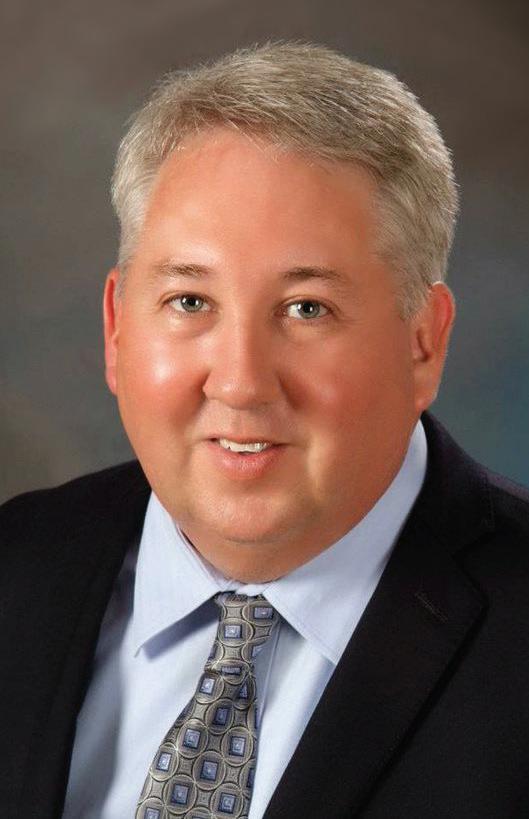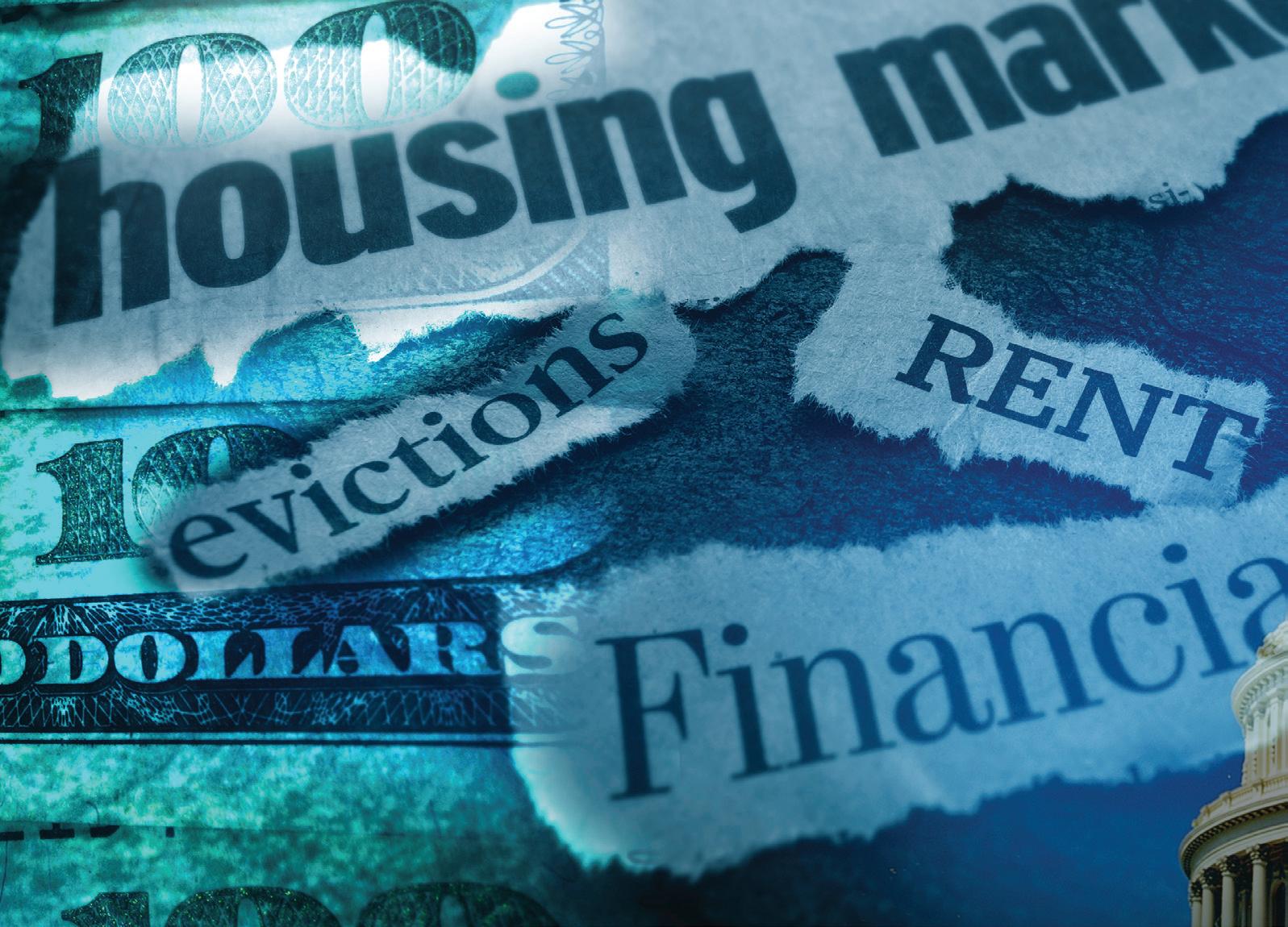
7 minute read
Capitol Interest
Off And Running in the 87th Texas Legislative Session
By Kenneth Besserman, JD, TXCPA Director of Government Relations and Special Counsel
The 87th Texas legislative session was gaveled in on January 12, 2021. Predictably, and in the midst of a pandemic and surging COVID-19 cases in Texas, opening day of the session began and ended very quickly. Both houses of the legislature spent very little time in the chambers – dispensing very quickly with speeches, recognitions, ceremonies, and the House’s and Senate’s required business. Among many things that were different on opening day compared to past sessions, the ceremonies were short, visitors and guests were limited, masks were ever present and for the second consecutive session, there is a new speaker of the House.
The week before opening day, the nation witnessed protests, riots and the breaching of the U.S. Capitol by those seeking to disrupt the certification of the Electoral College. Before and after January 6, tensions were high in Washington, D.C. and around the country, and state capitols were on high alert. Fortunately, there were no incidents in Austin leading up to or on opening day of the session.
In the Senate, Lt. Governor Dan Patrick started his fourth session in charge with Republicans maintaining an 1813 majority, one less than last session. There are four freshmen senators – Sarah Eckhardt (D-Austin), Cesar Blanco (D-El Paso), Roland Gutierrez (D-San Antonio) and Drew Springer (R-Muenster). While the party makeup changed very little from last session, after vigorous and heated debate the Senate adopted new rules, which now only require 18 votes to bring a bill up for consideration. This will make it easier for the party in power to shepherd through and pass much of their agenda.
In the House, Rep. Dade Phelan (R-Beaumont) was elected speaker of the House in an almost unanimous vote. Shortly after the election on November 3, where the Republicans maintained their majority in the same 83-67 split as in the 86th session, Phelan emerged as the consensus choice for speaker after the announced candidates pledged their support for him.
With the speaker elected, the House turned to debating House rules relating to how committees will function and how floor debate will occur. The House voted to allow members to cast their floor votes from their floor desks or from secure locations close to or attached to the House floor.
In addition, the House voted to allow virtual testimony in committees only for invited testimony. The public will still have access to the Capitol and committee rooms if they wish to testify or register support for or against legislation in committee. The full House and Senate rules can be found on the TXCPA Session page once the rules have been published.
The legislature then adjourned until January 26. It is quite common for the House and Senate to adjourn for many days at a time early on in the session. The House and Senate cannot pass legislation before the 60-day mark of session unless the governor sets the matter as an emergency item.
While House and Senate floor debate on legislation is limited in the first 60 days, committees may meet and discuss legislation. Patrick named Senate committee chairmen and members prior to the session. That information can also be found on the TXCPA Session Page. While no bills other than SB 1, the state budget, have yet been referred to any committees, the Senate Finance Committee will begin hearing testimony on the state budget.
Week two of the session also began and ended promptly. Both the Senate and House were in session for a couple of days taking care of administrative matters. On Wednesday, January 28, both the Senate and House adjourned until February 9. While multi-day adjournments are common at the beginning of all sessions, this extended adjournment is a little bit longer than usual. As we know, COVID-19 has clouded legislative operations.
In the House, Phelan asked that members submit their committee assignment requests by January 27. After committees are assigned, the House can begin referring bills to committee and they can begin hearing bills. While no floor action, except emergency measures, can be debated on the House or Senate floor in the first 60 days of session, committees can still hear testimony. Phelan announced his new committee chairmanships and committee appointments on February 4. Some of the
most significant appointments to committee chairs include Appropriations – Greg Bonnen (R-Friendswood), Calendars – Dustin Burrows (R-Lubbock), Redistricting – Todd Hunter (R-Corpus Christi), Public Education – Harold Dutton (D-Houston), Licensing & Administrative Procedures – Senfronia Thompson (D-Houston), and Ways & Means – Morgan Meyer (R-Dallas). Of the 34 standing committees, 21 will be chaired by Republicans, 13 by Democrats and Rep. Joe Moody (D-El Paso) will serve another term as speaker pro tem. Five committee chairs and 14 vice-chairs are women, while 14 chairs and 21 vice-chairs are Black, Hispanic or Asian American.
In the Senate, the Redistricting Committee began holding public hearings on new state and Congressional maps. While initial Census data may be delivered to the states in late April, final Census data may not arrive at the state level until mid-June or July, making it impossible for the House or Senate to pass maps during the regular session. In all likelihood, the governor will call members back for a special session this summer to draw legislative maps. Don’t make your vacation plans just yet! Governor Greg Abbott gave his State of the State address at 7 p.m. on February 1, laying out his priorities for the session. Those items were expanding broadband internet access, punishing local governments that “defund the police” as he defines it, changing the bail system, ensuring “election integrity” and providing civil liability protections for businesses that were open during the pandemic. By designating these items as emergency items and presenting that declaration to the legislature, both the House and Senate may debate those items during the first 60 days of the session. In addition to the emergency items, Abbott laid out a few more of his legislative priorities, which include making Texas a “Second Amendment sanctuary state,” legislation to strengthen civics education in Texas public schools and further restrictions on abortion. It is still too early to know whether these issues will pass or not, but they provide Abbott with a platform on which to run again for governor in 2022 or possibly be a candidate for president in 2024. One of the biggest issues facing the legislature and the governor is the emergency powers that a governor has during times of natural disasters and in times of declared emergencies. This issue has come to the forefront during the pandemic. While very well intentioned, legislators and the general public, from both sides of the political spectrum, have questioned whether the current law regarding emergency declaration and the attendant powers of the governor need to be reviewed, updated, expanded or left alone. Proposals have been filed and discussed to give the governor more express authority to take certain actions, and for legislative review and approval of gubernatorial actions. This will be one of the hot topics of the session and the debate will be interesting to watch. At the start of the session, Comptroller Glenn Hegar released the Biennial Revenue Estimate (BRE), which details the amount of revenue that will be available to the legislature for the 2022-2023 state budget. The Comptroller’s BRE detailed that the state will have about $113 billion available for general purpose spending, a very slight decrease from the amount available for the current budget. In addition, the Comptroller is only predicting a $1 billion shortfall in the current budget compared to what was predicted last fall.
TXCPA Advocacy Day
We held our 2021 Virtual Advocacy Day on Tuesday, January 26. Our program included Ross Ramsey (Texas Tribune), Joe Crosby (Multistate) and the TXCPA contract lobbyists discussing a myriad of issues ranging from the state budget, taxes, accounting issues, session operations, redistricting and the TXCPA legislative agenda. Following our speakers’ program, TXCPA hosted over 60 meetings with Texas legislators. We spoke with our representatives, senators and their staff about their legislative priorities and how session will operate. We also had an opportunity to speak about the TXCPA legislative
agenda, the importance of the accounting profession to the state and the economy, and much more. We will continue with many more meetings in the coming weeks. We appreciate all of the TXCPA members who were able to join these virtual legislative visits. As session speeds up and as more issues important to TXCPA and the accounting profession arise, please continue to look for our weekly Last Week in the Legislature articles on the TXCPA Session page. About the Author: Kenneth Besserman, JD, is TXCPA's Director of Government Relations and Special Counsel. Contact him at kbesserman@tx.cpa.
At the time of writing this article in early February 2021, the legislature will have been in session for about three weeks. Additional weekly updates can be found on the TXCPA Session Page on the website.












